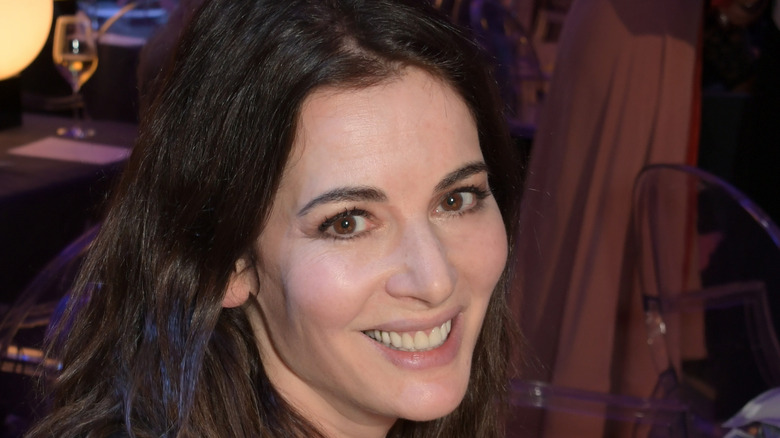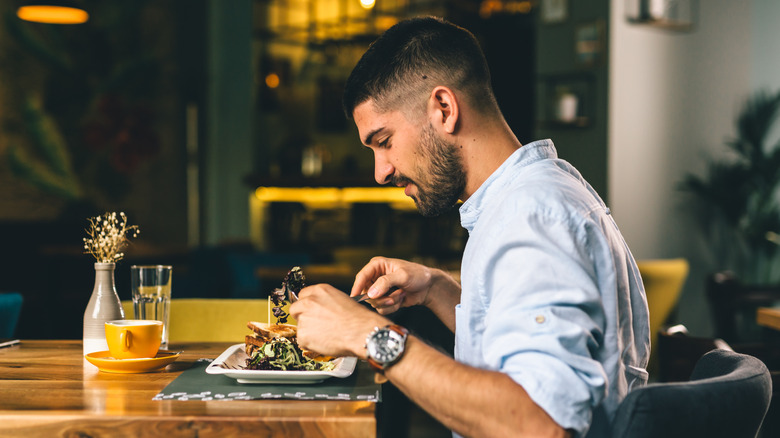The Real Reason Nigella Lawson Prefers To Eat Alone
Cooking for one and dining alone might seem daunting, but that's not a thing for British celebrity chef Nigella Lawson, who embraces the idea of a table for one so much she's put it at the heart of her latest book, "Cook, Eat, Repeat" (via Harper's Bazaar). She said, "While I admit to being something of a feeder, to say the least, I love cooking just for myself. I can't help thinking more people would enjoy cooking if they didn't think that the whole point of it were to feed others" (via The Guardian).
Lawson wouldn't be the first foodie to buck the image of a foodie feasting among friends. Nearly 100 years ago, legendary food writer M.F.K. Fisher penned a whole essay built on the idea of eating by oneself. She began her ode to the table for one, which she called "On Dining Alone," with a story about legendary Roman host Lucius Lucullus, who threw a fit because his chef decided to give him a subpar meal since he was eating without friends. His response: "It is precisely when I am alone that you require to pay special attention to the dinner. At such times, you must remember, Lucullus dines with Lucullus" (via Boston Magazine).
Nigella dines with Nigella
Lawson is no stranger to the idea of cooking for herself or dining alone, and the coronavirus pandemic seems to have crystallized this so much that she told Harper's Bazaar that she came close to calling one chapter "How to Invite Friends for Dinner Without Hating Them or Yourself."
"When you're cooking just for yourself, of course you don't want to end up with something disgusting, or even disappointing, but it's not quite the same as having a tableful of people to feed," she said. "And by being less stressed about the result, you can really concentrate more on the process, allow yourself to experiment and take risks, and feel your way and find ease in the kitchen," she told The Guardian.
The celebrity cookbook author also views cooking and dining alone as a chance for women, in particular, to reconnect with food in a positive way, because their relationship with food can be contentious. "When I cook for myself I'm essentially just thinking aloud by the stove, and I relish that. (And while this is liberating for all cooks, I do think making food to eat just for oneself can be essential for women, in particular, as it frees cooking from being an act of service to others.)"

